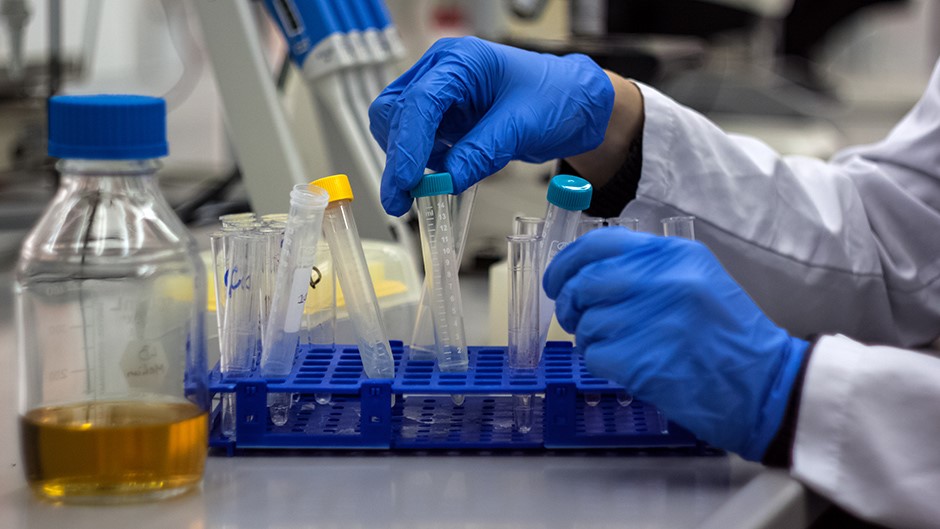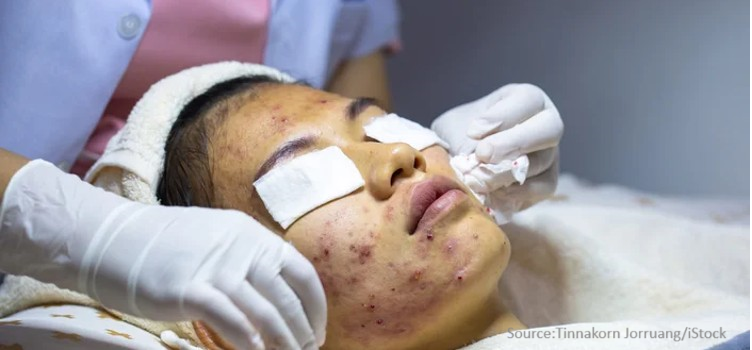
Allergy Treatment Market by Type (Eye Allergy, Food Allergy, Skin Allergy, Asthma, Rhinitis, and Others), by Treatment (Anti-Allergy Drugs and Immunotherapy), by End-User (Hospitals, Specialty Clinics, Homecare, and Others), and by Distribution Channel (Online and Offline Pharmacy)- Global Opportunity Analysis and Industry Forecast-2024-2030
Allergy Treatment Market Overview
The global Allergy Treatment Market size was valued at USD 23.10 billion in 2023 and is predicted to reach USD 36.47 billion by 2030 with a CAGR of 6.7% from 2024-2030. The market for allergy treatment, also known as allergy therapeutics market is related to the global industry focused on production, and distribution of medical drugs to manage and reduce allergic reactions and conditions.
This market consists diverse array of products such as antihistamines, decongestants, corticosteroids, immunotherapy, and biologics designed to address different types of allergies. The key aspects of the allergy therapeutics involve the ongoing advancements in medication development, and personalized medical strategies that improve treatment effectiveness and patient outcome.
The significant benefits of these allergy medications include enhancing the quality of life for allergy sufferers, lowering the occurrence of severe allergic reactions, and providing preventive and long-term management options.
Market Dynamics and Trends
The growing rate of allergies is boosting the allergy treatment market demand that necessities the need for medical intervention. Global Allergy & Airways Patient Platform (GAA) stated in its report that there is a rise in the occurrence of global allergic illnesses with approximately 30%-40% of the global population experiencing one or more allergic conditions in 2022. This surge in the number of individuals developing allergies due to factors such as environmental changes, pollution, and lifestyle shifts, propels the demand for allergy diagnostics, medications, and therapies.
Also, the surge in R&D focused on allergy treatment towards the introduction of new allergic therapeutics and drugs by regulatory bodies accelerates the allergy therapeutic market growth.
For instance, in February 2024, Food and Drug Administration (FDA) approves Xolair the first and only medicine for reduction of one or more food allergies in both children and adults. Such innovations improve the accuracy in identifying and treating allergies by providing personalized treatment for better patient outcome. The evolution in allergy diagnostics accelerates the growth of allergy treatment market to provide personalized medication for lowering the allergic reaction.
Furthermore, the rise in ageing population increases the chances of developing allergy due to decline in immunity power and presence of multiple chronic disease, thereby propelling the market growth.
The report of the United Nations Population Fund reveals that the number of aged people above 65 years doubled from 5.5% to 10.3% between 1974-2024 and is expected to reach 20.7% by the end of 2074. This demographic shift in population enhances the risk of allergic reaction due to weaker immune systems increasing the need for allergy therapeutics to address the complex health profiles of the old people, thereby driving the allergy treatment market expansion.
However, the use of herbal remedies restrains the growth of market by preventing patients to use conventional pharmaceutical options. Herbal remedies are perceived as natural and safer alternatives to reduce the demand for prescribed medicines and therapies to treat allergy. This shift in consumer preference limits the pharmaceutical companies to invest in development of new allergy medications and therapies, thereby hindering the allergy treatment market growth.
On the other hand, the introduction of personalized immunotherapy in treatment of allergy is expected to increase the growth of allergy treatment market. This includes tailoring allergy therapeutic to the specific allergens, and immune responses of the individual.
The adoption of personalized immunotherapy to provide more effective and lasting relief while minimizing adverse reactions is expected to create ample growth opportunities for the market in the forthcoming years.
Market Segmentations and Scope of the Study
The allergy treatment market report is segmented on the basis of type, treatment, end users, distribution channel, and region. On the basis of type, the market is divided into eye allergy, food allergy, skin allergy, asthma, rhinitis, and others. On the basis of treatment, the market is bifurcated into anti-allergy drugs and immunotherapy. On the basis of end-user, the market is bifurcated into hospitals, specialty clinics, homecare, and others. On the basis of distribution channel, the market is divided into online and offline pharmacy. Regional breakdown and analysis of each of the aforesaid segments include regions comprising North America, Europe, Asia-Pacific, and RoW.
Geographical Analysis
North America holds dominates the allergy treatment market share and is expected to continue its dominance during the forecast period. This attributed to the high prevalence of allergies in the region where a significant portion of population suffers from various allergic conditions such as seasonal, rhinitis and food allergies.
As per the report published by the Allergy and Asthma Network states that over 50 million people are diagnosed with allergy in the U.S. in 2023 and it is expected to rise in the upcoming years. This escalating rate of allergy in the region increases the need for effective allergy therapeutic to manage and reduce allergic condition.
Furthermore, the surge in government investment in the region towards development of allergy treatment fosters research, and accessibility of innovative therapies to treat various kind of allergies, thereby accelerating the market growth.
The House of Commons report reveals that around USD 33.96 million is invested by the Canadian government in 2023 towards initiating the National Food Allergy Action Plan to save lives, reduce allergy and improve the quality of life of the Canadian people. Such investments lead to introduction of advanced diagnostic technologies and medicines for reducing allergic reaction that propels the market growth.
On the other hand, Asia-Pacific is expected to show steady rise in allergy treatment market trends due to the rising ageing population in countries such as Japan, and China. Elderly people are vulnerable to allergic reaction due to weakening of the immune system that necessities the adoption of allergy therapeutics.
World Economic Forum states that Japan is rated as a country with world’s oldest population with over 36.23 million people belonging to the age group of 65 years and above. Allergy therapeutic aids elderly people by alleviating allergic reaction to enhance their quality of life, that boosts the market growth.
Moreover, the introduction of improved diagnostics by key players for accurate identification of allergens boosts the allergy treatment market expansion. The development of molecular and AI powered diagnostic techniques enables clinicians to detect allergy trigger with high precision and facilitate personalized treatment.
For instance, in March 2023, Metropolis introduced novel testing platform that is based on Component Resolved Diagnostics (CRD) to detect various forms of allergy in India. The launch of such advanced allergy diagnostics by key players enhances the accessibility to antihistamines in the region, thereby propelling its demand in the region.
Competitive Landscape
The allergy treatment industry comprising of various market key player such as Glenmark Pharmaceuticals Ltd., Perrigo Company plc, GlaxoSmithKline plc, Merck & Co., Inc., Entod Pharmaceutical Ltd., AbbVie Inc., Johnson & Johnson, Novartis International AG, Bausch Health Companies Inc., Hikma Pharmaceuticals plc. and others. These companies are adopting various strategies such as product launches to maintain their dominance in the global allergy therapeutic market.
For instance, in March 2024, Entod Pharmaceutical Ltd. introduced Lactoshield RH, a probiotic for managing allergic condition such as rhinitis. The probiotic is designed to restore healthy bacterial balance in nasal passage and offer a non-pharmacological option for the management of allergy.
Furthermore, in August 2022, Hikma Pharmaceuticals plc. launched Ryaltris for treating seasonal allergic rhinitis in adults and pediatric patients belonging to the age group of 12 years and above. This product launch enhances Hikma’s position as one of leading providers of nasal administered medicines in U.S.
Also, in March 2022, Allergan a parent company with AbbVie Inc. launched LASTACAFT Over-the-Counter for Quick and Long-Lasting Eye Allergy Relief. This product launch includes over-the-counter eye allergy solution, offering rapid itch relief lasting up to 16 hours for individuals with ocular allergies.
Key Benefits
-
The report provides quantitative analysis and estimations of the allergy treatment industry from 2024 to 2030, which assists in identifying the prevailing market opportunities.
-
The study comprises a deep-dive analysis of the current and future allergy treatment market trends to depict prevalent investment pockets in the sector.
-
Information related to key drivers, restraints, and opportunities and their impact on the market is provided in the report.
-
Competitive analysis of the players, along with their market share is provided in the report.
-
SWOT analysis and Porters Five Forces model is elaborated in the study.
-
Value chain analysis in the market study provides a clear picture of roles of stakeholders.
Allergy Treatment Market Key Segments
By Type
-
Eye Allergy
-
Food Allergy
-
Skin Allergy
-
Asthma
-
Rhinitis
-
Others
By Treatment
-
Anti-Allergy Drugs
-
Immunotherapy
By End User
-
Hospitals
-
Specialty
-
Clinics
-
Homecare,
-
Others
By Distribution Channel
-
Online
-
Offline Pharmacy
By Region
-
North America
-
The U.S.
-
Canada
-
Mexico
-
-
Europe
-
The UK
-
Germany
-
France
-
Italy
-
Spain
-
Denmark
-
Netherlands
-
Finland
-
Sweden
-
Norway
-
Russia
-
Rest of Europe
-
-
Asia Pacific
-
China
-
Japan
-
India
-
South Korea
-
Australia
-
Indonesia
-
Singapore
-
Taiwan
-
Thailand
-
Rest of Asia Pacific
-
-
RoW
-
Latin America
-
Middle East
-
Africa
-
Key Players
-
Glenmark Pharmaceuticals Ltd.
-
Perrigo Company plc
-
GlaxoSmithKline plc
-
Merck & Co., Inc.
-
Entod Pharmaceutical Ltd
-
AbbVie Inc.
-
Johnson & Johnson
-
Novartis International AG
-
Bausch Health Companies Inc.
-
Hikma Pharmaceuticals plc.
REPORT SCOPE AND SEGMENTATION:
|
Parameters |
Details |
|
Market Size in 2023 |
USD 23.10 Billion |
|
Revenue Forecast in 2030 |
USD 36.47 Billion |
|
Growth Rate |
CAGR of 6.7% from 2023 to 2030 |
|
Analysis Period |
2023–2030 |
|
Base Year Considered |
2023 |
|
Forecast Period |
2024–2030 |
|
Market Size Estimation |
Billion (USD) |
|
Growth Factors |
|
|
Countries Covered |
28 |
|
Companies Profiled |
10 |
|
Market Share |
Available for 10 companies |
|
Customization Scope |
Free customization (equivalent up to 80 working hours of analysts) after purchase. Addition or alteration to country, regional, and segment scope. |
|
Pricing and Purchase Options |
Avail customized purchase options to meet your exact research needs. |




 Speak to Our Analyst
Speak to Our Analyst

































